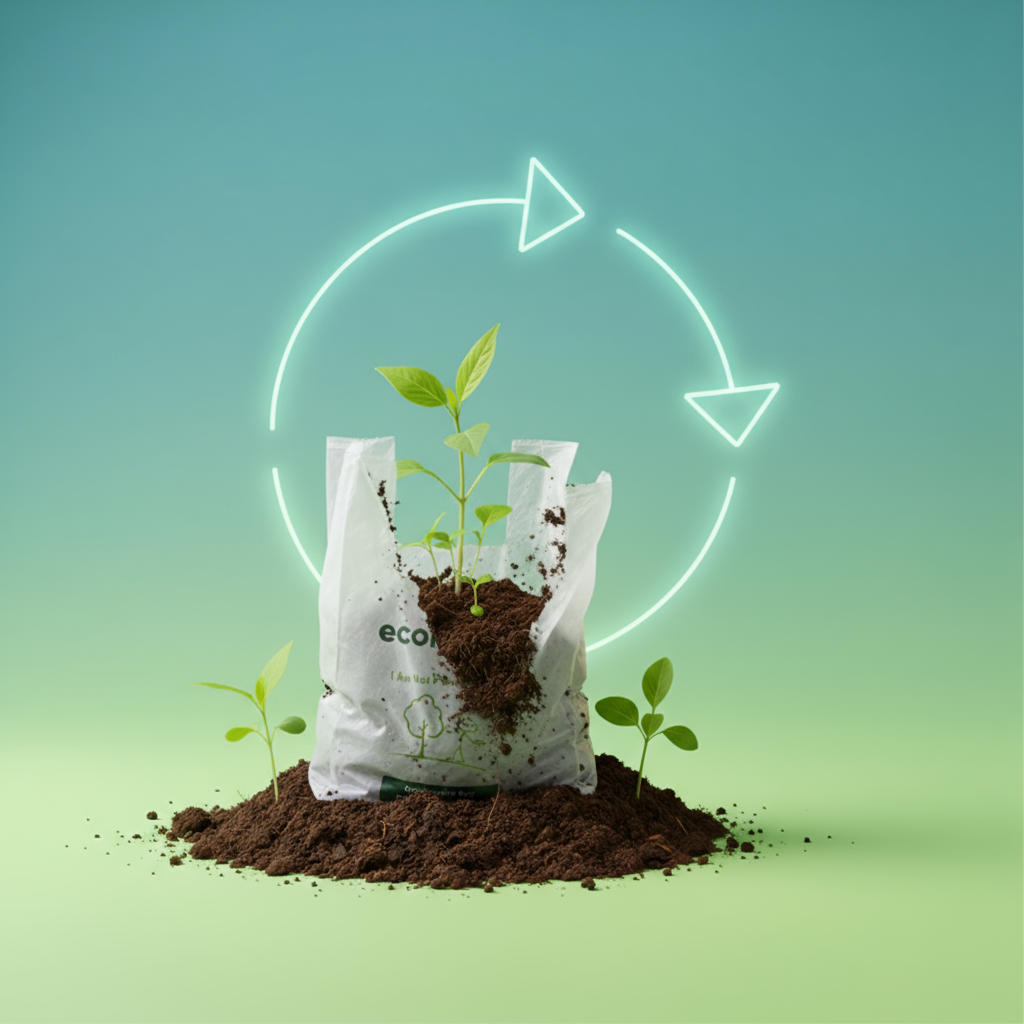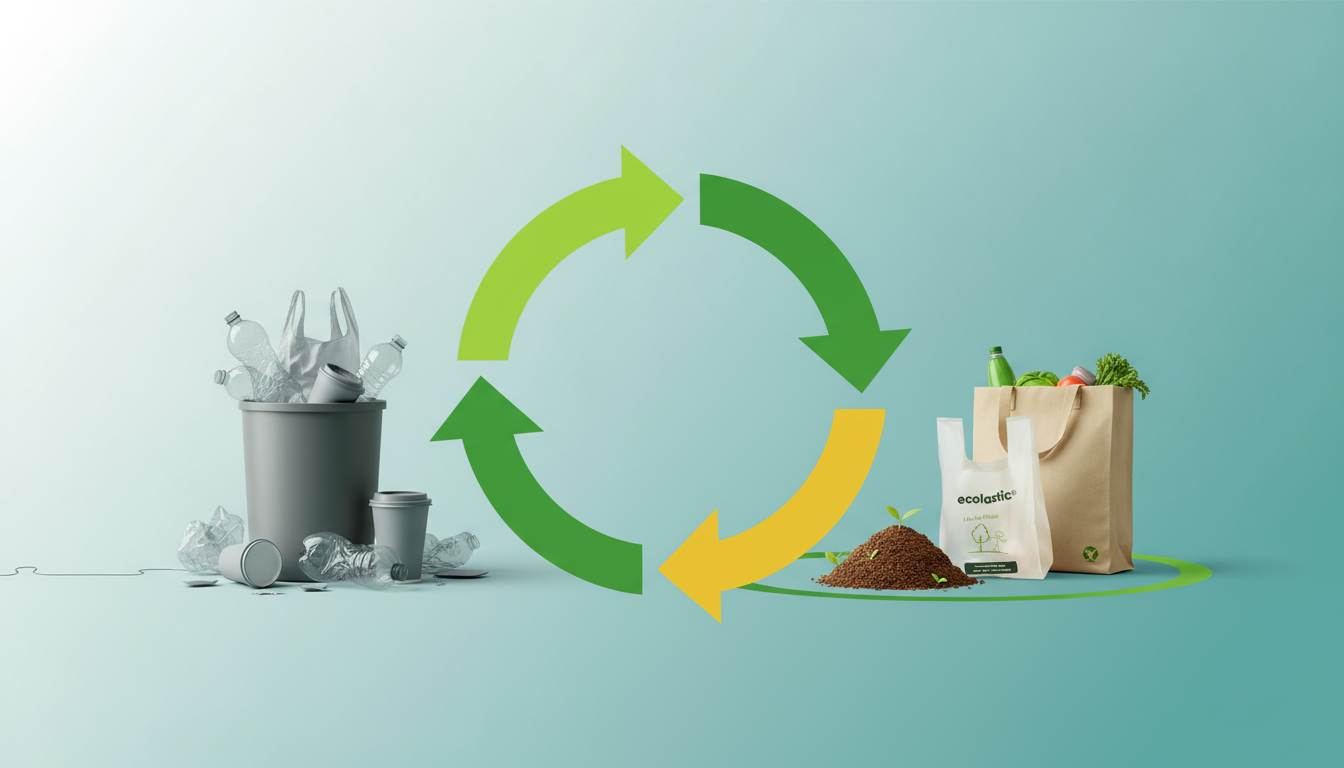As the world struggles with the combined challenges of natural resource depletion and degradation of the environment, the circular economy shines as a ray of hope, a model that is simple at its core, which holds the promise to reinvent the wheel of the vehicle in which we produce, consume, and waste today. But is it really the answer to our sustainability dilemma, or merely another buzzword? Let’s explore both the idea, its implications for tomorrow’s industries, and how to take this concept and turn it into reality.
What is the Circular Economy?
The circular economy keeps products in circulation for as long as possible, it departs from the traditional model of “Take, Make, Waste”. Instead of extracting resources and discarding products after use, it tells us to keep materials in circulation through sharing, reusing, repairing, refurbishing, and recycling. This system minimizes waste and pollution while regenerating natural systems, a stark contrast to the linear economy.
The principles of circularity – designing out waste, keeping products in use, and regenerating ecosystems – are not just theoretical. They offer tangible benefits such as reducing carbon emissions, conserving raw materials, and fostering innovation across industries. For instance, implementing circular strategies in sectors like plastics and food could cut global emissions by 39%. This work on a circular economy is an important part of slowing climate change. We must take action to address the very evident climate crisis, and the circular economy model has an important role to play.
Hope for Sustainability
The circular economy isn’t just an environmental initiative; it’s a blueprint for sustainable growth. By reducing dependency on virgin resources and introducing waste-to-value innovations, this model addresses pressing challenges like climate change and biodiversity loss. It also opens doors to economic opportunities. new business models, increased competitiveness, and job creation.
For consumers, circularity translates to durable products that save money in the long run. Choosing compostable packaging not only reduces waste but also enriches soil when disposed of responsibly.
Circular Economy in Action

As the only company in India recommended by NITI Aayog and designated as the Official Sustainability Partner of the G20 Summit, Ecolastic has established itself as a leader in combating single-use plastics. Our collaboration with DRDO further underscores dedication to replacing conventional plastics with eco-friendly solutions.
We have embodied circularity through our innovative range of 100% compostable products. From biodegradable garbage bags to courier bags. Every item is crafted from renewable materials like corn starch and vegetable derivatives. These products break down naturally into compost, leaving no toxic residue behind – a perfect fit for a regenerative system.
Key Products Supporting Circularity
Compostable Garbage Bags: Designed for responsible waste management, these bags decompose efficiently in under 180 days.
Plant Grow Bags: Ideal for gardening enthusiasts looking to nurture plants while minimizing environmental impact. You can call it free corn compost!
D Cut & U Cut Carry Bags: supplying brands with the best compostable carry bags in bulk that are customizable and have top-notch weight bearing capacity.
Courier Bags: A sustainable alternative for e-commerce packaging that aligns with global efforts to reduce plastic pollution.
The Circular Economy’s Impact on Industries
Industries worldwide are beginning to embrace circularity as a pathway to resilience and innovation. For example:
- Advanced Recycling Technologies: Cutting-edge methods now tackle complex materials like electronic waste.
- Product-as-a-Service Models: Companies lease products instead of selling them outright, ensuring efficient use and end-of-life management.
- Circular Design: Products are increasingly being designed with repairability and recyclability in mind.
These shifts are not merely aspirational, they’re essential for meeting ambitious environmental targets. Governments are introducing policies to incentivize circular practices while consumers demand sustainable options. Brands that fail to adapt risk being left behind.
Consumer Choices Matter
The success of the circular economy hinges on collective action. Every decision, whether it’s choosing compostable garbage bags or opting for eco-friendly courier packaging, contributes to a larger movement toward sustainability. By supporting environmentally conscious companies, consumers play an active role in reducing plastic pollution and fostering a regenerative future. Consider this: by 2050, there could be more plastic than fish in the oceans if current trends continue. Switching to compostable alternatives isn’t just an ethical choice; it’s an urgent necessity.
Challenges Ahead
While the promise of circularity is undeniable, implementation remains a challenge. Transforming supply chains and business models requires significant investment and collaboration across sectors. Circularity thrives on interconnected systems where waste from one process becomes input for another. Achieving this requires unprecedented levels of coordination between manufacturers, suppliers, policymakers, and consumers – a feat that can be difficult in fragmented markets.
Fostering innovation in sustainable technologies, incentivizing businesses to adopt circular practices, and educating the public about the importance of regenerative systems. Moreover, public awareness about compostable products versus conventional plastics needs to grow. Discussions on topics like affordability, practicality and availability also rise up but we are here for a reason!
Hoping for More Hype
The circular economy is far more than hype, it’s hope for a sustainable future. By eliminating waste, regenerating ecosystems, and fostering innovation, this model offers a viable path forward for industries and individuals alike. Let us assume that people may be using it as a buzzword, we hope it catches on as it will only spread information about a solution, so yes we are hoping for more hype!
As consumers and businesses navigate this transition, we provide tangible solutions that embody circularity at its best. Whether it’s their compostable garbage bags, plant grow bags or biodegradable items made from renewable materials, we show us that sustainability isn’t just possible, it’s actionable.
So let’s make choices that matter!





